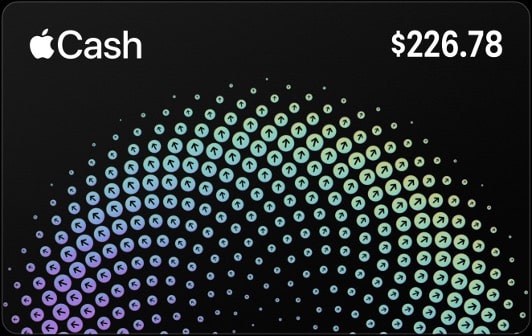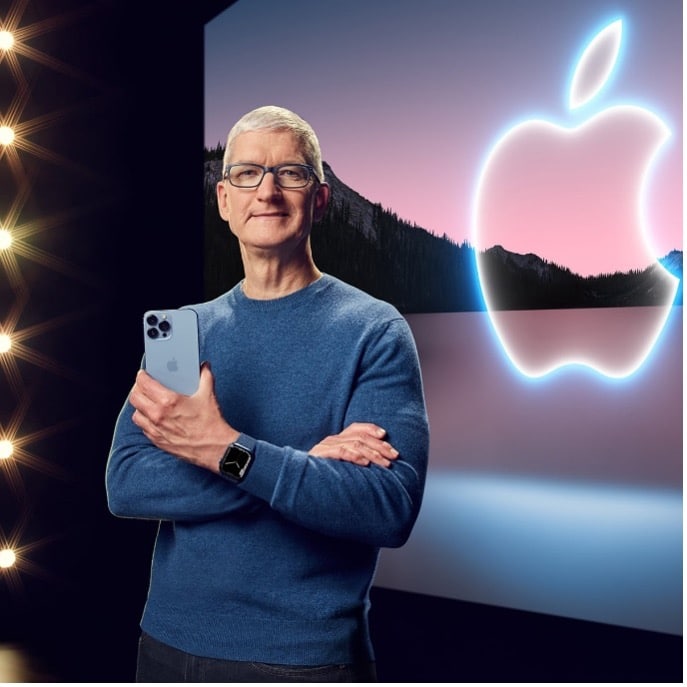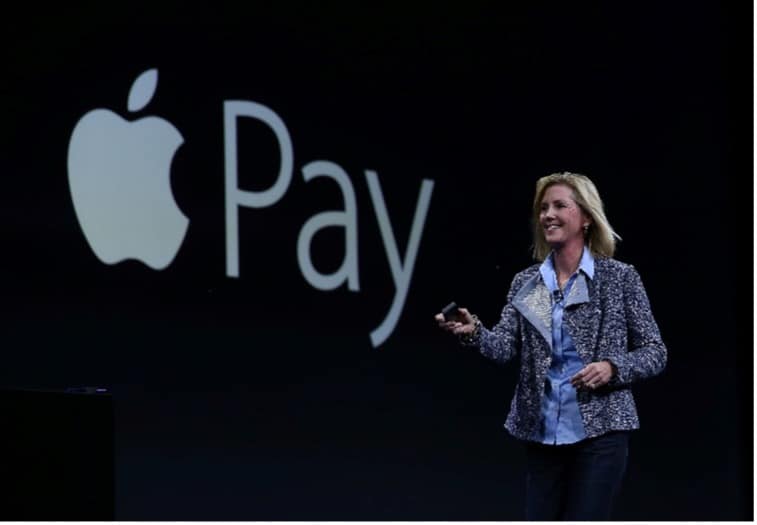Apple’s 4.15% interest account in partnership with Goldman Sachs will break traditional banking’s grip on the retail market. More will follow.

With a market capitalisation of $2.75 trillion, Apple is easily the most valuable company in the world. It was the first to breach the $3 trillion symbolic high watermark in early January 2022, and a return to these giddy heights is very possible for the longer-term investor.
While quarterly results saw revenue dip by 3% to $94.8 billion, it still beat analyst expectations of $92.9 billion. Further, EPS remained constant year-over-year at $1.52, far surpassing the Refinitiv average analyst prediction of $1.43.
Mac sales fell by 31% to $7.2 billion while iPad sales dropped by 13% to $6.7 billion. But iPhone sales accounted for 54% of sales in the quarter, delivering a record March quarter of $51.3 billion in revenue. Services revenue rose to another record — $20.9 billion representing 22% of all revenue, fuelled by the billions of iPhones in use.

CEO Tim Cook enthuses that ‘our installed base of active devices reached an all-time high.’ Last quarter, this was already at 2 billion devices — predominantly iPhones.
And this brings us to the new Apple Cash Account.
Apple Cash Account at a glance
Before UK investors get too excited, there are a few restrictions on the recently launched Apple account.
- your iPhone must be updated to 16.4.1 (iPhone 8 or higher)
- you must own an Apple Card account and add the app to your iPhone
- you must be 18+
- have a social security number or individual taxpayer identification number
- be a US resident with a valid, physical US address
- have set up two-factor authentication for your Apple ID
- applied within the US
- your Apple Cash Account must be verified
Instant success
It might be hard to remember this, but Apple was at one point trading under the US definition of a penny stock. Indeed, the company lost $1 billion in 1997 and came close to collapsing at multiple points on its climb up the mountain.
Apple is now so flush with cash that operating expenses rose by $1 billion last quarter while every other tech firm is engaged in huge cost-cutting drives. It’s also not firing staff, unlike its competitors.
The company generated cash flow of $28.6 billion while returning over $23 billion to shareholders during the quarter, announced a 4% increase in the company’s dividend to $0.24 per share, and another $90 billion in share repurchases. The company has repurchased $572 billion of its shares since 2012 — while nearest competitor Alphabet has spent only $178.5 billion on stock buybacks.
Now Apple’s looking to expand into banking.
Its new ‘high yield’ savings account pays out 4.15% in interest per annum. While this is lower than can be found in money market funds or specialised savings accounts, it is more than tenfold the national US average of 0.35%.
There are no fees, no minimum deposits, and no minimum balance requirements. And customers can set up and manage their Savings account directly from Apple Card in the Wallet app. Set up takes circa one minute — this compares to hours or even days with traditional banks and is far faster than even the most advanced FinTechs.

Jennifer Bailey, Apple’s vice president of Apple Pay and Apple Wallet enthuses that ‘our goal is to build tools that help users lead healthier financial lives, and building Savings into Apple Card in Wallet enables them to spend, send, and save Daily Cash directly and seamlessly — all from one place.’
Daily cash is a popular cashback offer of up to 3% with selected sellers, and Apple is clearly attempting to become both the bank and seller in US transactions.
Where next? Regulatory problems
We know that Apple has 2 billion devices online — most of these are iPhones. We know that opening the new Apple Cash Account (which is backed by Goldman Sachs) takes only one minute. And we know that the interest rate on offer is far superior to generic offerings on the market.
Most importantly, Apple brand loyalty and UX design means that getting customers has not been hard. Apple’s software is simply better designed than competitors in banking, and this includes the dozens of Fintechs which have sprung up to challenge traditional banks.
It’s not surprising then, that the NASDAQ 100 titan reported that it had brought in just under $1 billion in deposits in its first five days of operation.
The key difference between Apple and other bank switchers is that Apple can prompt all 2 billion iPhone users to open an account. If it wants, it could offer new users $5 credit to open the account in under a minute, direct from their phone. The traditional banks don’t stand a chance — and the days of offering 0.01% interest are dead.
The problem now is regulatory. What happens when Alphabet (Google) and Amazon decide to open their own cash accounts? Both companies already have billions of customers with accounts already. Then there’s a decent chance that Apple will offer stock investing — it’s the natural next step.
How much power should one company have? How much personal and financial data will be collected? What consumer privacy protections will there be?
Regulators will have a new problem to deal with soon — Apple is just so powerful that its account offering will only become more popular with time. Apple could potentially become the most popular retail bank in the USA within a few years.
Of course, this may be conjecture. JP Morgan has $2.38 trillion of deposits — Apple’s $1 billion in deposits appears a paltry sum in comparison.
But the other NASDAQ giants can’t be far behind. And Apple has a history of ridiculous growth.
This article has been prepared for information purposes only by Charles Archer. It does not constitute advice, and no party accepts any liability for either accuracy or for investing decisions made using the information provided.
Further, it is not intended for distribution to, or use by, any person in any country or jurisdiction where such distribution or use would be contrary to local law or regulation.
